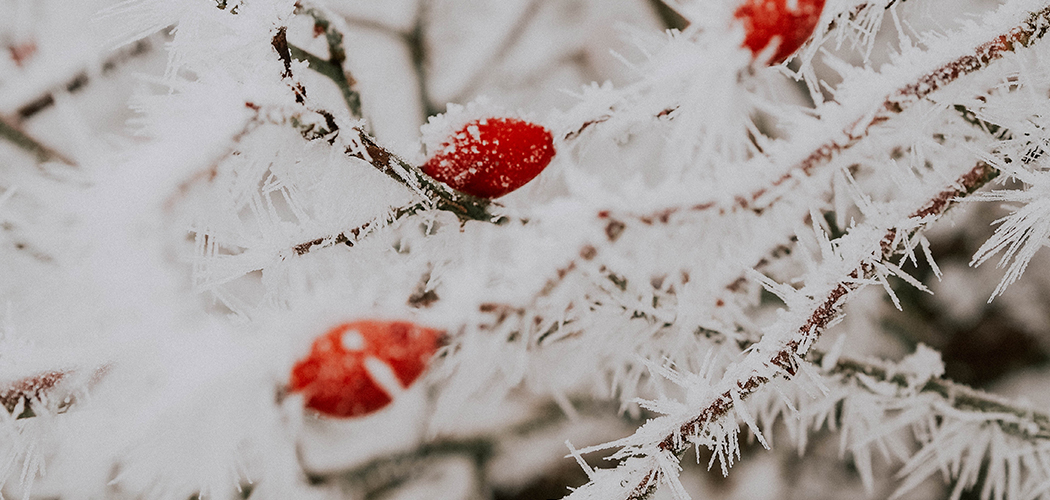[title subtitle=”words: Marla Cantrell”][/title]
It is still the quiet hours of Christmas morning, just after three, and Annie Mac tosses in her bed. She has fallen asleep in the dress she’d worn to her boyfriend’s mama’s house, and now it is tangled, the wide red skirt wound around her legs as tightly as a folded umbrella.
She rises, shakes out her skirt, goes to her bedroom window and adjusts the blinds so she can see outside. For a moment, the light from the moon makes the clouds glow, and the sky looks otherworldly. Annie Mac rubs her eyes and sighs.
After dinner, her boyfriend’s widowed mama had been drinking whiskey sours and playing Roy Orbison, the old vinyl records scratchy, and she’d talked about the past like it was so close she could walk right back into it. “There was a boy when I was seventeen,” she’d said to Annie Mac’s boyfriend, Boone. “I should have married him instead of your daddy.” And then she’d cried.
That sentence ended the night early and on a sour note. Annie Mac ate the last cheese straw, gathered her things, hugged Boone’s brittle mama and said good-bye.
Now, in her one-bedroom house, she looks around. Her Christmas tree is made of silver tinsel. The ornaments are from the 1950s: ceramic skaters, felt elves with plastic faces, cardboard churches sprinkled with glitter. She’s collected them over the years, these bits of the nostalgia, and even now, they make her feel as if there’s order and wonder in the world. On her small kitchen table is a tablecloth printed with Mr. and Mrs. Claus dressed in pink, circa 1942, and she imagines two people sitting there, hands clasped, listening to Bing Crosby sing “White Christmas,” a cake with seven minute frosting on a stand between them, two Coca-Colas in glass bottles sitting beside red plates.
What Boone had said as she was leaving was this. “She only says that because she’s mad Daddy died. She takes it as a personal insult, him leaving her like that.” Boone had shaken his head, his shaggy brown hair falling across his eyes when he did it, the light catching the open collar of his shirt, showing off his perfect neck. “Daddy dying ruined my mama’s life. Flat out ruined it.”
Annie Mac had known what was coming next; she’d heard it before. She’d folded her arms and waited. “Which is why I can’t seem to take the leap,” Boone had said, meaning he could never marry because then he would die, and dying would ruin everything.
She’d run her hands down the side of her satin skirt and felt the fabric glide across her fingers. Earlier, as she’d gotten ready, she thought she looked beautiful. Maybe ten or fifteen pounds too heavy, but still. In that skirt, with her black hair up, she could turn heads. She’d put on her new lipstick called Sleigh Him!, dabbed Chanel No. 5 on her wrists and felt hope rise. “Thirty-four ain’t so bad,” she said to the mirror, and then winked at her reflection.
But hope had faded the second Boone mentioned marriage. She’d watched him as he spoke, saw the crease form between his eyebrows, saw his dark eyes grow even darker. She supposed she was supposed to feel sorry for him, but she did not.
“I have to go,” Annie Mac had said. They’d been on the front porch by then, and she’d tripped on the last step, recovered, and drew her shoulders back, in case he was still watching. She’d parked on the street, and as she walked toward her Chevy, she’d smelled the exhaust from someone’s clothes dryer, the floral scent of fabric softener rising in the early night.
Now, she stands by her bedroom window. No chance of snow this year. Too warm. Too dry. Annie Mac lives a few miles from Creekmore Park, the city’s crowning jewel at Christmastime. It’s too late to see the light display, the thousands of twinkling bulbs that make every shrub and tree look like sculpture.
Still, the idea of the park draws her in. She grew up in the country, needs the country, and the park is the closest thing to those planted fields and dirt roads and the woods where she’d once built her own tree house. Annie Mac washes her face, lets down her hair, scoots into jeans that were loose before the holidays.
Driving in the early morning on the biggest day of the year feels like being in a movie, the streets bare, Christmas lights glowing on storefronts and across the eaves of houses. At the park, she walks the trail that goes by the swimming pool, the tennis courts, the playground. A squirrel skitters down a nearby tree and startles her.
The moon casts enough light for Annie Mac to see fairly well, so she veers off the concrete path. Fallen leaves cover the ground beneath the trees, and her boots sound against them. She breathes in the cold air, the dry leaves. A nearby bakery is already at work, the smell of donuts rising above everything else. If she could bottle the scent of this night, she’d never wear Chanel again.
She decides to sit and then leans against the trunk of an oak. An acorn falls and then another. Annie nods off, wakes up, takes a scarf from her pocket, tucks it around her neck.
And that is when she sees him, this old man walking toward her, dressed in white, his long hair white. Annie Mac checks her pulse, making sure she’s still on this side of the Great Divide, thinking he might be an angel come to get her. When she feels her heart pumping, she exhales and inches her way up on shaky legs.
“No need to fret,” he says as he approaches. He points to the gazebo behind him. “I was sitting over there, getting a modicum of rest after a long night, and I saw you, right there.” He points again, this time to the trailhead. “But then you walked off the path and didn’t reemerge.” He scratches his head. “I didn’t want to frighten you, but that was a while ago, and I thought you might be in distress. So I decided to come see.”
Annie Mac has her hands behind her. She has her keys worked between her fingers in a way that could make them a weapon if need be. “Is that jacket fur?” she asks, and the man laughs.
“It is. As are the pants.” He reaches in his coat pocket, pulls out a white fur hat and slips it on his head. “As is the cap.”
“It looks like you’re wearing a costume.”
“Not at all. These are my vacation clothes!”
“A little warm for Arkansas,” Annie Mac says.
“I’m leaving in a while,” the man says, and then extends his hand. “The name’s Pere.”
“Perry?” Annie Mac says, and the man laughs again. “Close enough,” he says.
“I’m Annie Mac.”
“What a lovely name,” Pere says, and Annie Mac feels a moonbeam of happiness enter her chest.
“I love this place,” she says, and just then she hears a cat calling through the darkness.
“Let’s walk,” Pere says, and Annie Mac pushes her keyed hand in her pocket, just in case.
“You should see it when the Christmas lights are on,” Annie says. “Amazing.”
Pere studies her face for a moment. “What brings you here at such a disadvantageous time?”
“I have a boyfriend who won’t marry me.”
“Whyever not?”
“His daddy died.”
“Just now?”
“Thirteen years ago.”
“I don’t understand.”
“Me either, Pere.”
“Well, you seem like the kind of girl hundreds of men would want to marry. You have a sweet heart, I can tell. You have a kind face.”
“I don’t feel so sweet anymore,” Annie Mac says. “My heart feels like a hole lately.”
Pere is walking with his hands behind his back, his head down. “Happens to all of us.” He laughs. “Even more so in election years. Not to worry, though. Hearts have a way of mending.”
“A hundred percent of the time?”
“No, Annie Mac, but awfully close.”
“I don’t even know if I want to marry Boone,” Annie Mac says.
“I don’t believe you do.”
Annie’s boot catches on a tree root, causing her to stumble. Pere catches her, then wraps his arm through hers. “I’ve been wanting to move to the outskirts of town,” she says. “Maybe start an organic farm.”
“Ah,” Pere says. “I can see you there. A checkered shirt, overalls, a litter of chickens. It’s important to do what you love. Life, as a general rule, doesn’t last forever.”
A bread delivery truck rolls by on Rogers Avenue, its sign visible as it passes beneath the streetlights. “Have you always done what you love?” Annie Mac asks.
Pere pats her hand. “I’ve done what I was called to do. I believe it’s the same thing.”
The concrete pathway sparkles in the moonlight. The trees moving in the breeze sound like whispers. A bird calls out. Another squirrel runs by. A rabbit appears and then disappears in the time it takes to take a breath.
When they reach the Little Red Pantry, a small box sitting on a pole with shelves where people leave food for those who might need it, Pere stops. “What is this?” he asks, and Annie Mac explains. “How magnificent,” Pere says and claps his hands. “I love it!”
He opens the glass door and grimaces. “It’s almost empty!” Annie Mac says, “Not for long. This lady named Barbie oversees it. She or one of her volunteers will be by come daylight to refill it. I can promise you that.”
“But what if someone needs something now?” Pere asks, raising his hands.
Annie Mac looks around at the barren park, the empty street, the quiet playground. “I think it’s okay,” she says, but already Pere is holding his right hand out, his eyes shut tight, and already the shelves are filling as if by sheer force of will, with Christmas candy and wrapped presents and stockings filled to the top.
“There,” Pere says, clapping his hands. “That’s much better.”
She takes two steps back and stares at the pantry. “That was…”
“Oh, that was nothing, really.”
Annie Mac covers her eyes, uncovers them. The pantry looks like a store window advertising Christmas.
Pere touches her shoulder. “Some advice, if I may,” he says, and Annie Mac blinks hard. “Don’t give Boone a second thought. Move. Start your farm. See what happens.”
Annie Mac can see the future, so close she could open a door and step through it.
“And now, for you,” Pere says, and at that moment, the Christmas lights come on all across the park. One of the displays is Ten Lords A-Leaping. Annie Mac laughs, wipes her eyes. She feels as if she could leap herself, and so she tries, her feet leaving the ground as she does, her body rising until she is looking down on everything below. For that moment she is part of it all, the lights, the moon, the mighty oaks. She calls to Pere, but he is long gone, so she floats for a while in the place of perfect beauty, on this day set aside for miraculous works of incredible kindness.




